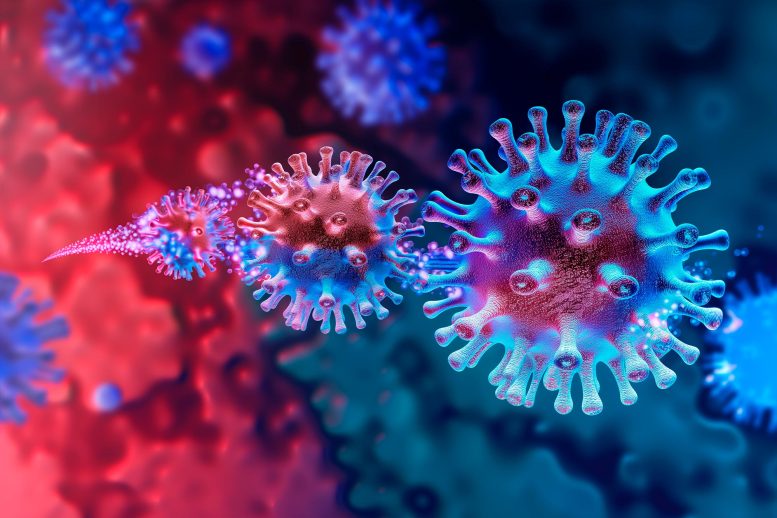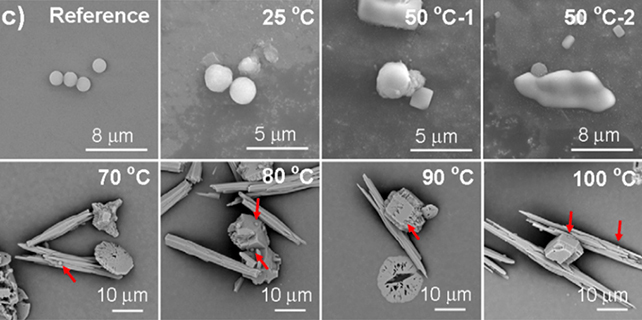August 2023 saw the detection of JN.1, a new COVID-19 variant that has spread globally and shown significant evolutionary changes. This has called for ongoing vigilance and adaptation in global health strategies. Credit: SciTechDaily.com The emergence of the JN.1 COVID-19 variant in late 2023 represents a significant shift in the virus’s evolution, highlighting the need for sustained global health efforts. Since its detection, the JN.1 variant has widely spread, becoming dominant in Australia and around the world, prompting the most significant wave of COVID seen in many jurisdictions for at least the past year. The World Health Organization (WHO) classified JN.1 as a “variant of interest” in December 2023 and has emphasized that COVID continues to be a significant global health threat, causing a considerable burden of preventable disease with potential long-term health consequences. This highlights the need for continued vigilance and adaptation in global health strategies. JN.1 holds significance as a pathogen and in terms of COVID’s evolution. It represents a new version of SARS-CoV-2 and is rapidly displacing other circulating strains. This unique evolution has substantial implications for disease and transmission. The seemingly sudden emergence of JN.1, despite the ongoing success of the steadily evolving omicron variants, has led to significant implications for disease and transmission. The rise of JN.1 prompts the question of whether the WHO will recognize it as the next variant of concern with its own Greek letter. In any case, the emergence of JN.1 signals a new phase in the pandemic. The story of JN.1 (or BA.2.86.1.1) begins with the emergence of its parent lineage BA.2.86 around mid-2023, originating from a much earlier omicron sub-variant, BA.2. Challenging clinical characteristics observed with JN.1 (and SARS-CoV-2 in general) indicate that the virus can navigate its way around the immune system and find new ways to infect cells and transmit effectively. This necessitates further study into how this plays out in people and how it impacts clinical outcomes. Despite the unique characteristics of JN.1, evidence suggests that our adaptive immune system can still recognize and respond to it effectively. Updated vaccines, tests, and treatments remain effective against JN.1. We still remain uncertain about whether this virus is on a path to becoming the “next common cold” or not. However, the emergence of JN.1 underscores the ongoing nature of the COVID epidemic and the need for comprehensive strategies to reduce transmission and impacts while minimizing the imposition on individuals and society.
The JN.1 Variant Is a Significant Development in the Fight Against COVID












